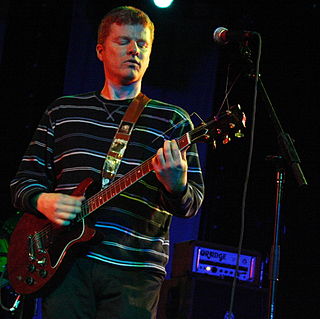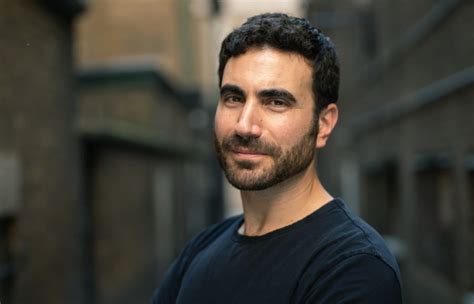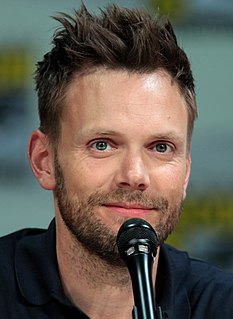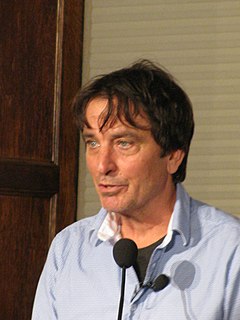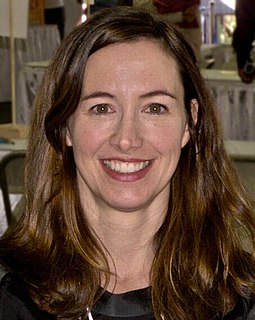A Quote by Greil Marcus
I was the first records editor at Rolling Stone, and there were no rules. There was nothing to fall back on as to how do you write about this kind of music, so people were trying absolutely everything with a great sense of freedom and experimentation and success and failure, and a feeling of, “My God, people are actually paying attention to this. Let’s pretend they aren’t because we don’t want to be intimidated by what somebody might think of what we’re saying.
Quote Topics
About
Absolutely
Absolutely Everything
Actually
Attention
Back
Because
Editor
Everything
Experimentation
Failure
Fall
Fall Back
Feeling
First
Freedom
God
Great
How
Intimidated
Kind
Might
Music
No Rules
Nothing
Paying
People
Pretend
Records
Rolling
Rolling Stone
Rules
Saying
Sense
Somebody
Stone
Success
Success And Failure
Think
Trying
Want
Were
Write
Related Quotes
I think there was something that made us not pay attention to climate change. Something that was up there. There was a saying when we were trying to pay attention to the environment that people used this phrase NIMBY - not in my back yard. People were saying, ‘I don’t care, it is not in my back yard.’ But now it’s in everyone’s back yard.
Bob Wallace was my editor at Rolling Stone when I first started writing there, and he's a wonderful editor. I was in the Philippines during the Marcos overthrow, and I was up on what was called Smokey Mountain. I think it's gone now, but it was a garbage dump with a bunch of people living on it. I was talking to Bob on the phone, and I told him, "I'm a humorist. I can't write about this." And Bob told me to let my style be dictated by the subject, to take what I saw and write about it in the tone that it requires.
..there is nothing worse than the feeling that no one cares whether we exist or not, that no one is interested in what we have to say about life, and that the world can continue turning without our awkward presence. I began to imagine how many millions of people were, at that moment, feeling utterly useless and wretched—however rich, charming, and delightful they might be—because they were alone that night, as they were yesterday, and as they might well be tomorrow.
Sometimes I'm trying to communicate a feeling. Sometimes I can't piece it together into any kind of coherant thesis. I'm just trying to evoke some kind of mood, and put some kind of idea in somebody's head. If Marshall McLuhan or Harold Innis were looking at it, they would tell you that the genre of rock music isn't the best way to deliver a political message because it distorts it, it makes it into entertainment. Perhaps the best political message is just to speak it to somebody. I think that's something I'm always writing about in songs, just how to mediate, how to present something.
I also never would have imagined I'd quote back a church lesson, but when the rest of the crowd stood up to take communion, I found myself saying to Dimitri: "Don't you think that if God can supposedly forgive you, it's kind of egotistical for you not to forgive yourself?" "How long have you been waiting to use that line on me?" he asked. "Actually, it just came to me. Pretty good, huh? I bet you thought I wasn't paying attention." "You weren't. You never do. You were watching me.
Feminism is something I think about more when I watch the film, Christine, rather than when I was actually doing it, to be honest with you. But I do think it functions as a sort of interesting feministic critique, because you are seeing a woman who's resolutely incapable of behaving like the kind of woman that's acceptable at the time. She doesn't know how to play the game by everyone else's rules, and it makes you realize that actually there were rules that were functioning for a woman to be a careerist.
Will Bridges, who is the co-creator with me, when we were working on 'SuperBob,' we were just talking about how we like to write about relationships. And we were talking about what love is. We were in very different stages; he was married and was about to have his first child, and I was kind of dating the wrong people.
When [George W.] Bush was elected, I think they thought I would have some sort of special "in" with that administration, to provide some sort of inside poop. Which is not something I'd be interested in doing, and anyway, I didn't. I actually knew more people in his dad's administration. So it was obviously winding down at Rolling Stone, and they were having financial troubles, too. They weren't getting the advertising, and the issues were getting thin. They fired Bob Love, who'd been my editor there for a long time.
Also because few people were watching - aside from a healthy amount of incarcerated people, because M2 was offered in a lot of prisons - I was able to ask really long, kind of muso questions, that they loved. We could really geek out and talk about music for long periods of time, and that tape would just keep rolling and rolling.
I was pretty realistic to people about what we could get done, and the situation we were in, and trying to tamp down expectations. If you listen to my stump speeches, if you listen to what I said at Grant Park, I kept on saying, "Look, this is not just about me, this is not going to happen in one year, or one term, or even one presidency." And we tried to layer into everything we were saying a sense of hope, but also realism.





